Early in the morning of Wednesday March 21st we waved Ian and Marilyn off from the anchorage at Kaoua and soon afterwards, set off for Ulugan. Ian had told Paul the forecast was for little wind and we had a bit of a choppy start to the passage with no sail to stabilise us on the waves. Now that we’ll be doing more overnight passages, and especially as we’re more likely to encounter rougher conditions the further north we go, our ‘grab bags’ were filled. Like several things on a boat, they are something you have on board but hope never to use. Waterproof bags are placed near the hatch, ready to grab in an emergency (when we’re preparing to board something else we never hope to use, for instance: the liferaft!). Inside one bag, we placed passports, boat’s papers and bank cards. The other bag contains sachets of water, seasickness tablets, torches (one of which is clockwork) an epirb (a device which informs of our position) a hand held VHF radio and GPS . The waves increased as night fell, and although the wind picked up it was in the wrong direction for sailing. Our night watches now have us life jacketed and clipped on as we stumble around doing checks. It’s one of my biggest fears that in rough seas, Paul has to clamber onto the coach roof to adjust sails and poles while being thrown around. The likelihood of him slipping in rough conditions is all too real for me and the first thing I do when I wake is to check he’s ok.
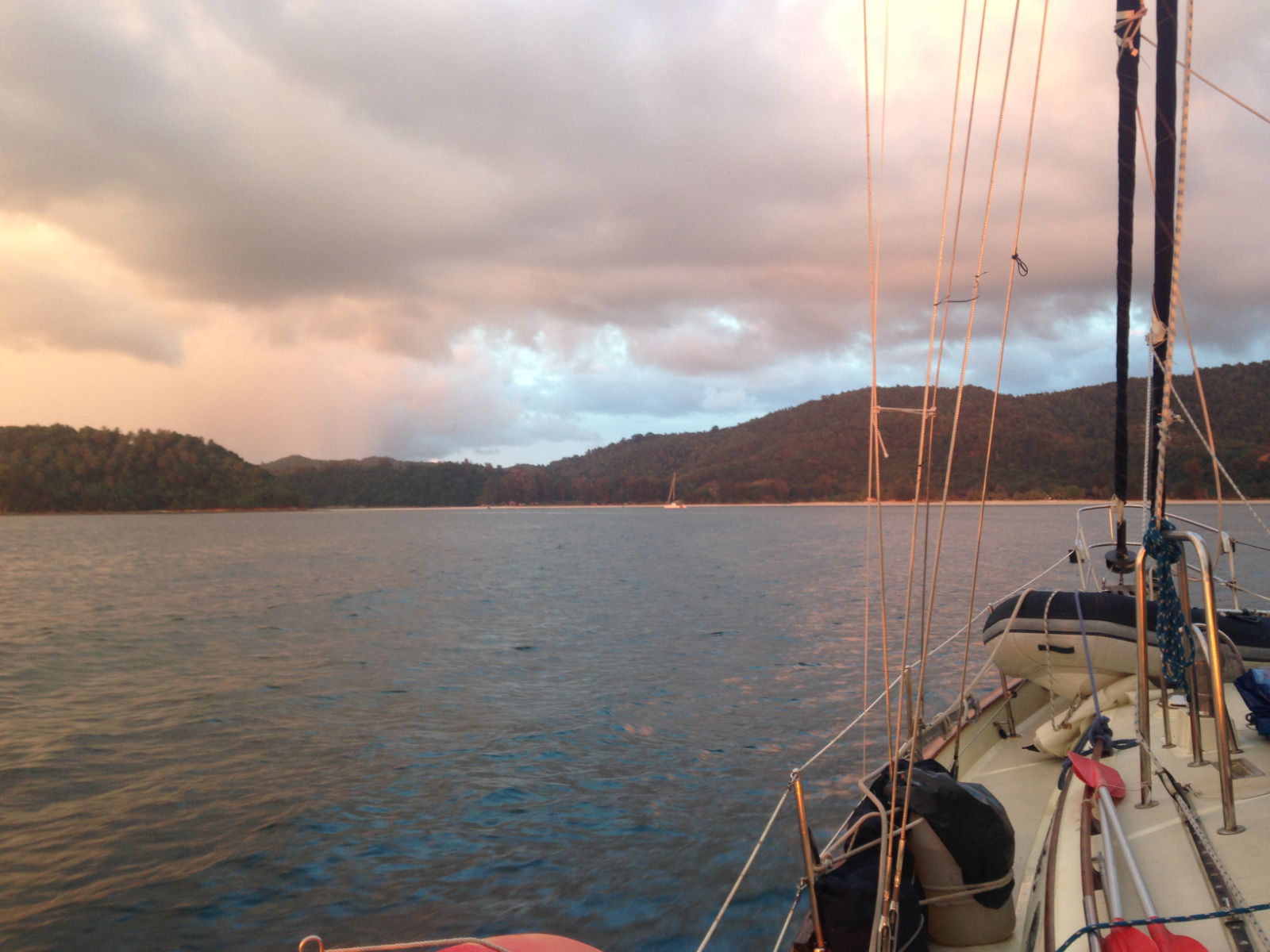
The boat rode a switchback of high waves all through the night, which causes a decidedly ‘drunken’ gait when moving around. Bruises appear on knees, thighs and arms from being shoved into hard edges, and like monkeys, we grab overhead rails to propel ourselves along. Apparently it wasn’t supposed to be this rough and Paul was sure it would improve shortly. Before that happened, though a few items left their shelves, flew through the doors and scattered all over the floor, including a box of washers and a container full of provisions we’d bought for the Pacific crossing. Paul got covered in diesel while attempting to fill the tank, and had to turn the boat into the wind to stabilise it. Worst of all, my shelf of books overturned so that the spines were hidden and only the pages were showing – a nightmare for me to look at and to be unable to rectify.
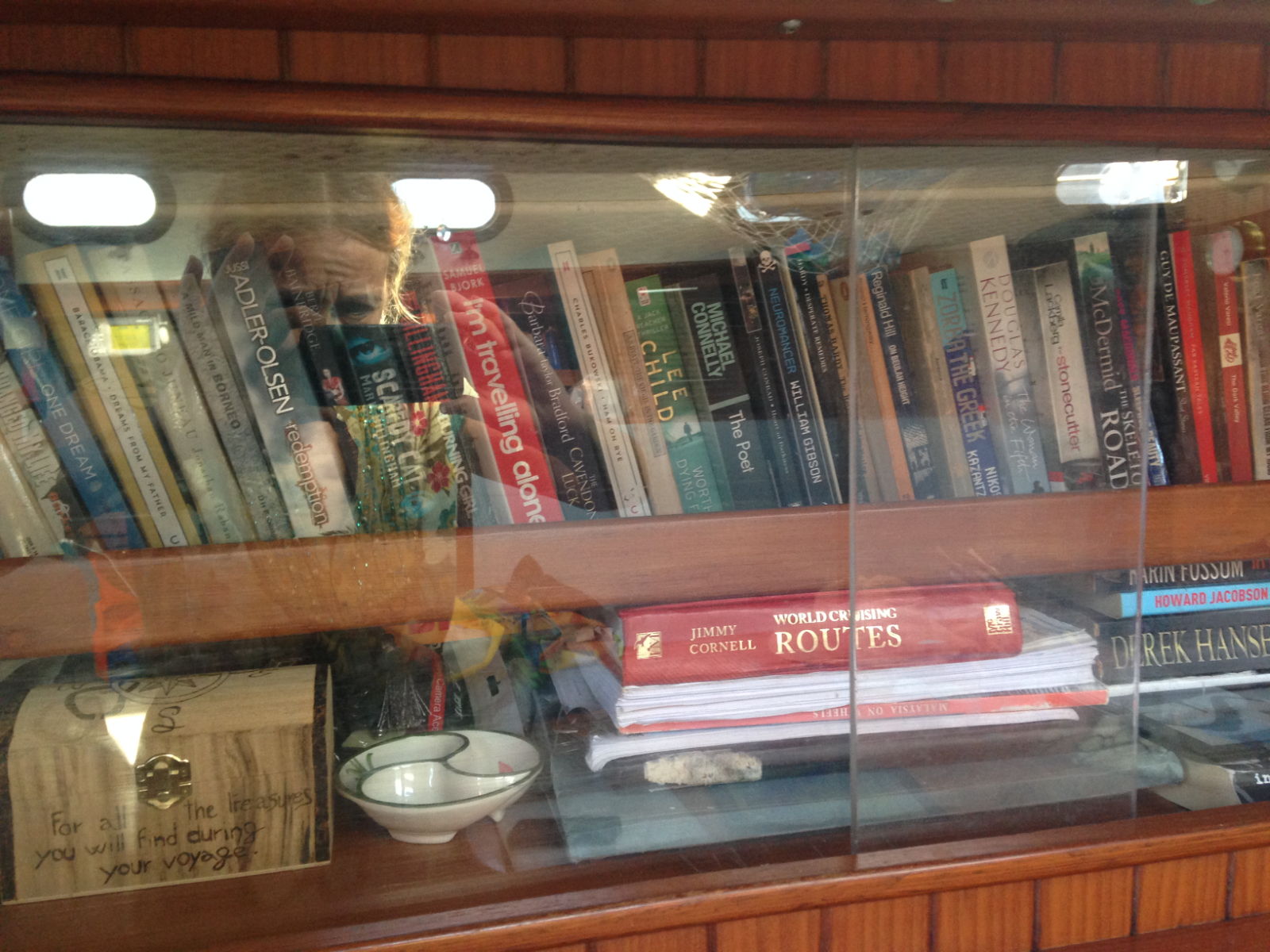
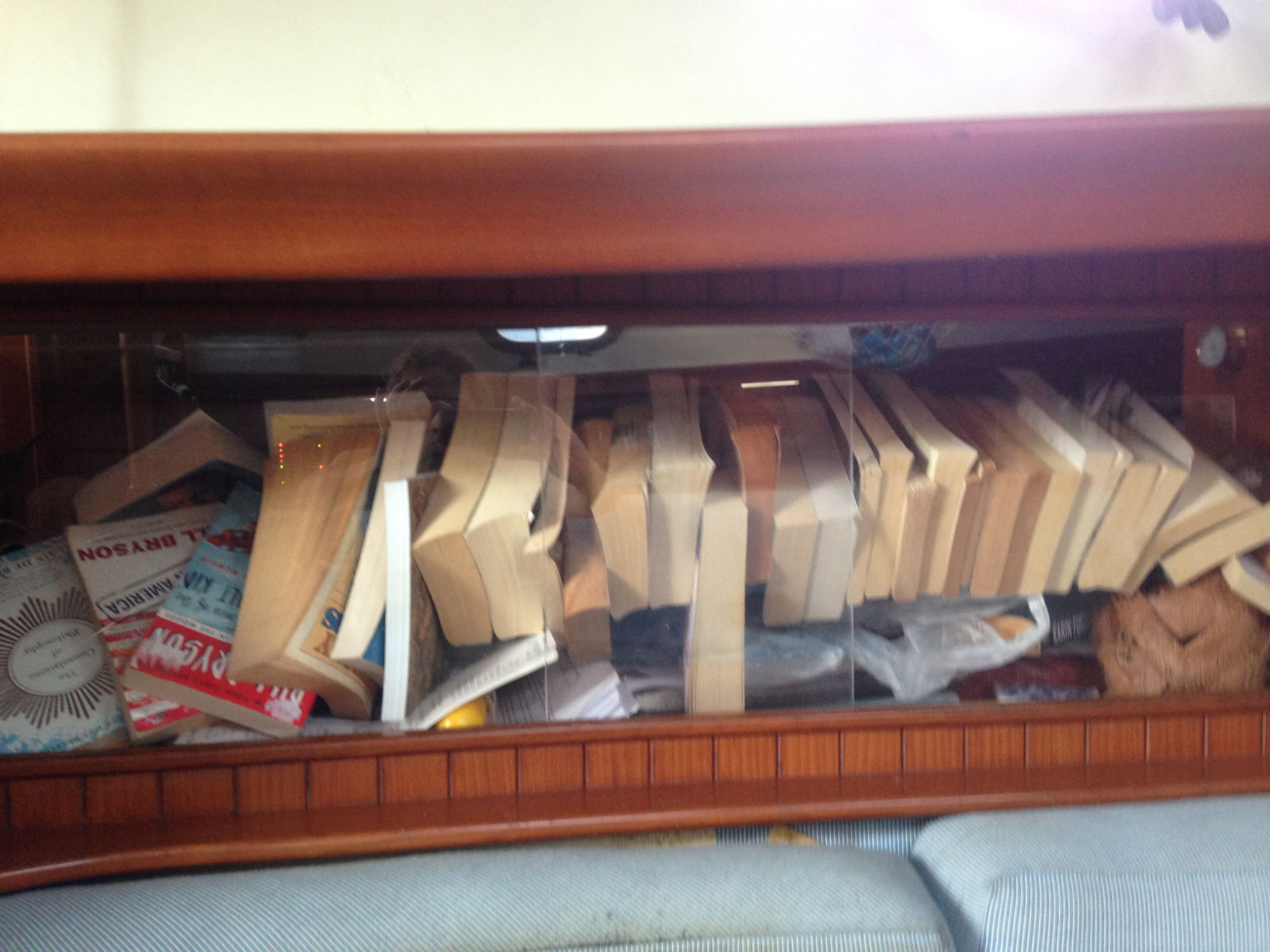
Making a coffee or eating anything more ambitious than a cereal bar or bags of snacks, biscuits etc was not possible and a timely reminder that I need to prepare things in advance for these passages. The day blurred into both of us alternately sitting, lying, sleeping, checking conditions, course speed and direction. Paul made us pot noodles – or the Malay equivalent – for dinner which, with the addition of bread made an ideal easy passage meal. The squall arrived just after midnight!
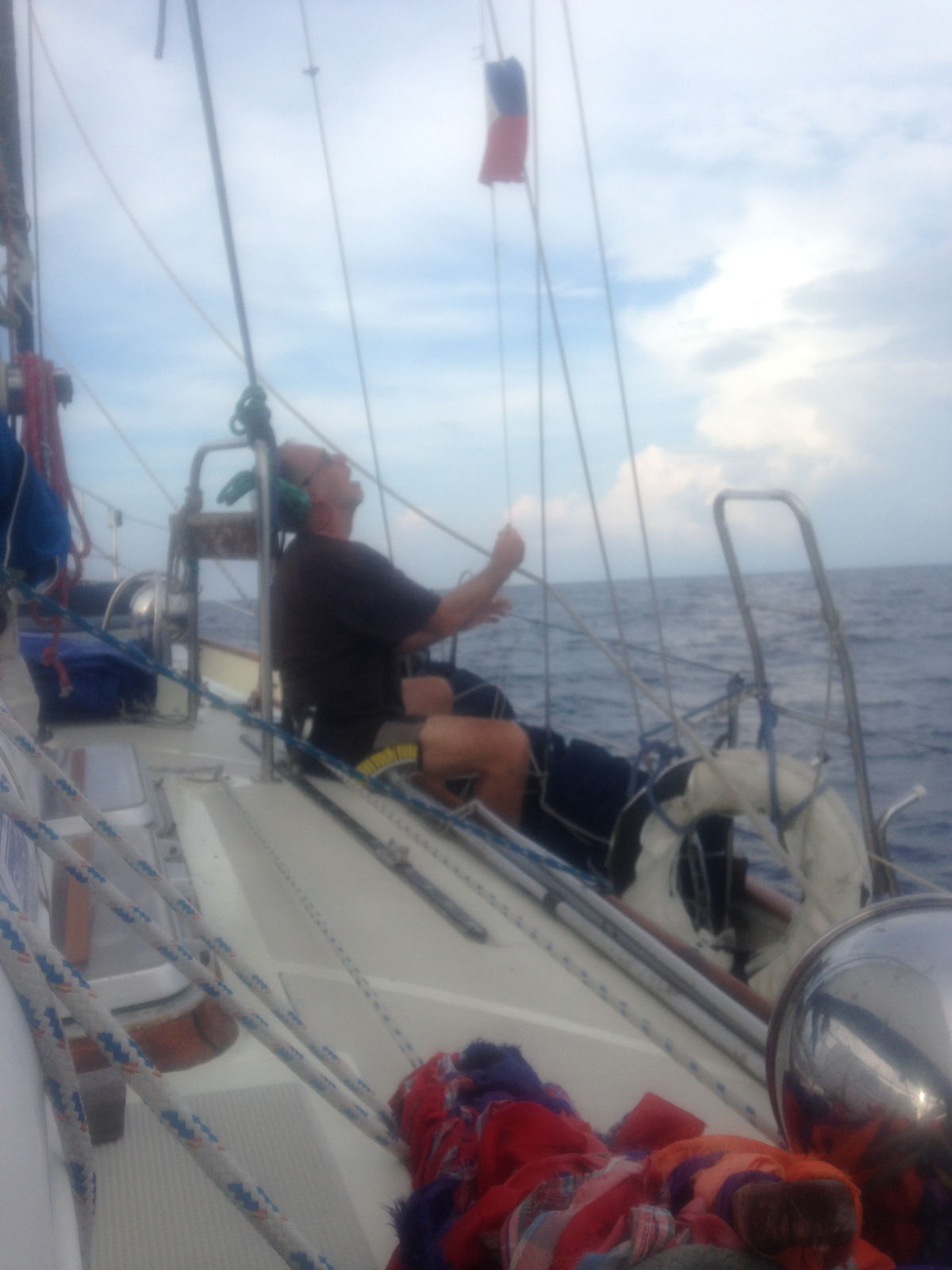
It was terrifying at times. The sails that had helped our speed were banging and flapping in the wind. The wind vane had been doing so well but the wind changed direction and caught us off guard. It increased in knots very quickly and I watched anxiously as Paul crawled along the port side to sort out the sheets while the boat was listing and crashing into the waves. I struggled to hear the instructions he was yelling above the roar of the wind and the banging of the sail block. I had to turn the deck lights on, switch the autohelm on, change the course on the dial above the hatch – all of which meant trying to locate my glasses, and a torch in order to see where the switches were, while trying to remain upright in the rocky conditions. The rain was coming down in sheets and I looked at Paul, all lit up by the spreader lights as he brought the boat back on course, soaked with rainwater and dodging the waves that were crashing into the cockpit. ‘Are we in grave danger?’ I asked. His response (which reassured me) was that he felt in grave danger of going insane if the alarm on his phone wasn’t switched off soon! This is the alarm he uses to wake him every 20 minutes while he is on watch! I hadn’t even heard that in the background with all the other noise. That example is par for the course on any passage and never seems such a big deal once it’s passed. It didn’t stop me from sleeping to be ready for my watch, but only after I extracted my usual promise that Paul would clip on if he had to go on the coach roof. By the time I took over at 5am, all was calm and I took pleasure in watching the sky go through a fabulous range of colours before the sun peeped up on the horizon.
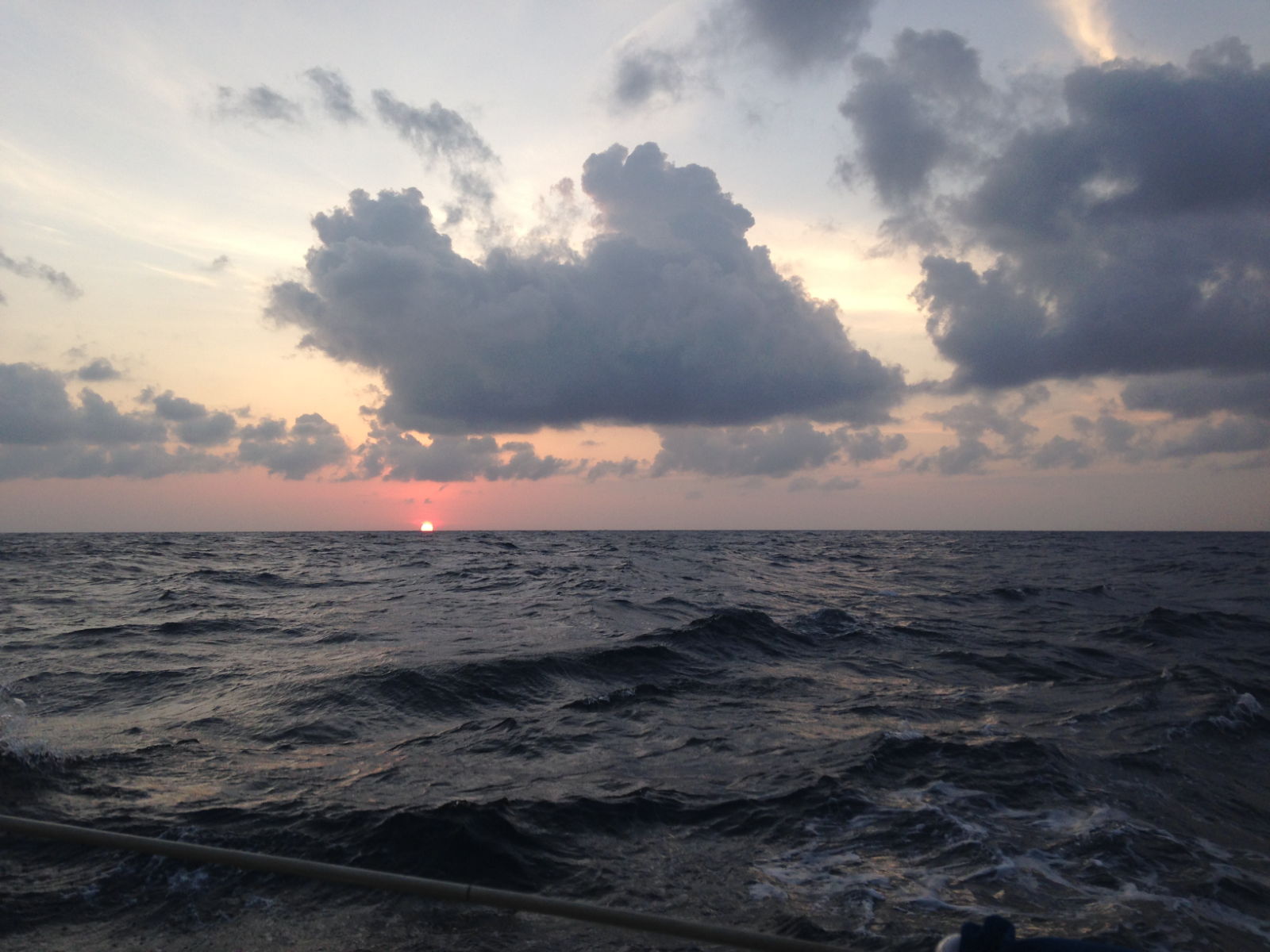
Our progress was slow but steady throughout the day, but we were burning more fuel than Paul anticipated due to not being able to sail as much as we’d wanted to. Nature’s elements take on increased relevance at sea because of their impact on our comfort and progress. We’re constantly checking the wind speed and direction, looking for dark clouds on the horizon, the height of the waves as well as what phase the moon is in and when it will rise. I can also see why sailors get inspired to learn about star constellations and planets. That night, after a dinner of sausages, potatoes and beans I sat in the cockpit admiring them. Because it was such a clear night, with no light pollution or obstructions, they appear beautifully vivid in the blackness and are quite mesmerising.
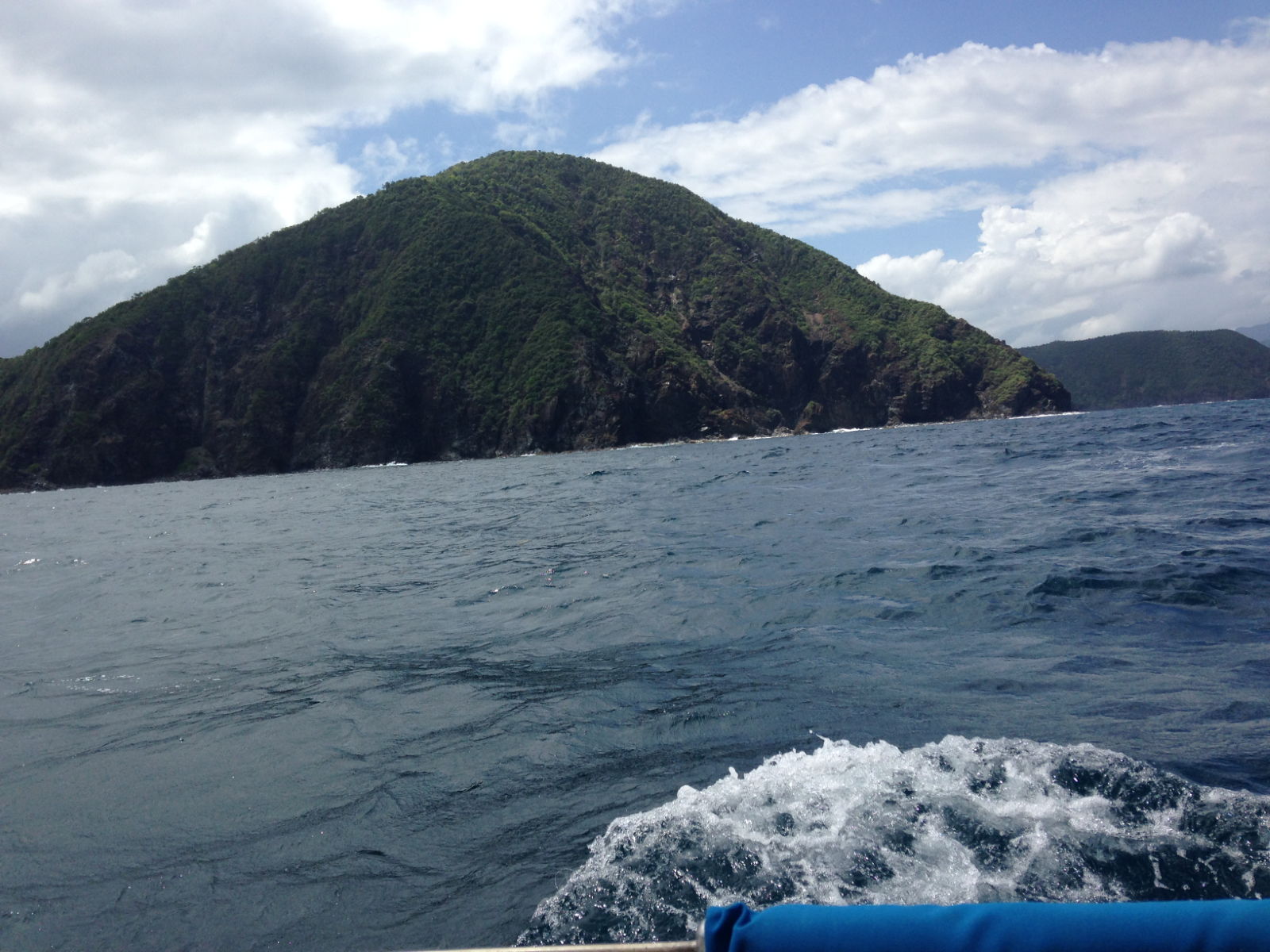
The next night, I had to wake Paul a few times to sort out various incidents with the sails. Once, the topping lift became disengaged and the boom was ramming against the solar panels. I watched as he attempted to retrieve its rope with a boat hook while it was flying around fairly high up. He had to get in some precarious positions while the boat was rocking, which had me mentally rehearsing the man overboard procedure until he retrieved it. We ploughed on through high waves in an up and down motion, consequently not making much headway: our average speed was 3 knots instead of the desired 6. There was also a lot of sea spray coming over the sides, which certainly wakes you up when you’ve just come on watch all groggy, and stick your head out for a quick look around!
Making coffee down below one morning, I was shocked when I noticed a boat alongside us from the window and rushed up to see it. It turned out to be the first of the many fishing ‘bancas’ we would see in the Philippines. Three men were on board the wide, raft-like vessel which is distinctive for its balancing wooden contraptions on each side of the hull. It seemed they had simply come for a closer look and waved and smiled at me when I appeared in the cockpit, then motored off into the choppy waves. I marvelled at how far out they were; land, in the form of Palawan, was a long way off and it looked too flimsy to withstand the increasingly rough water but really, what do I know ;).
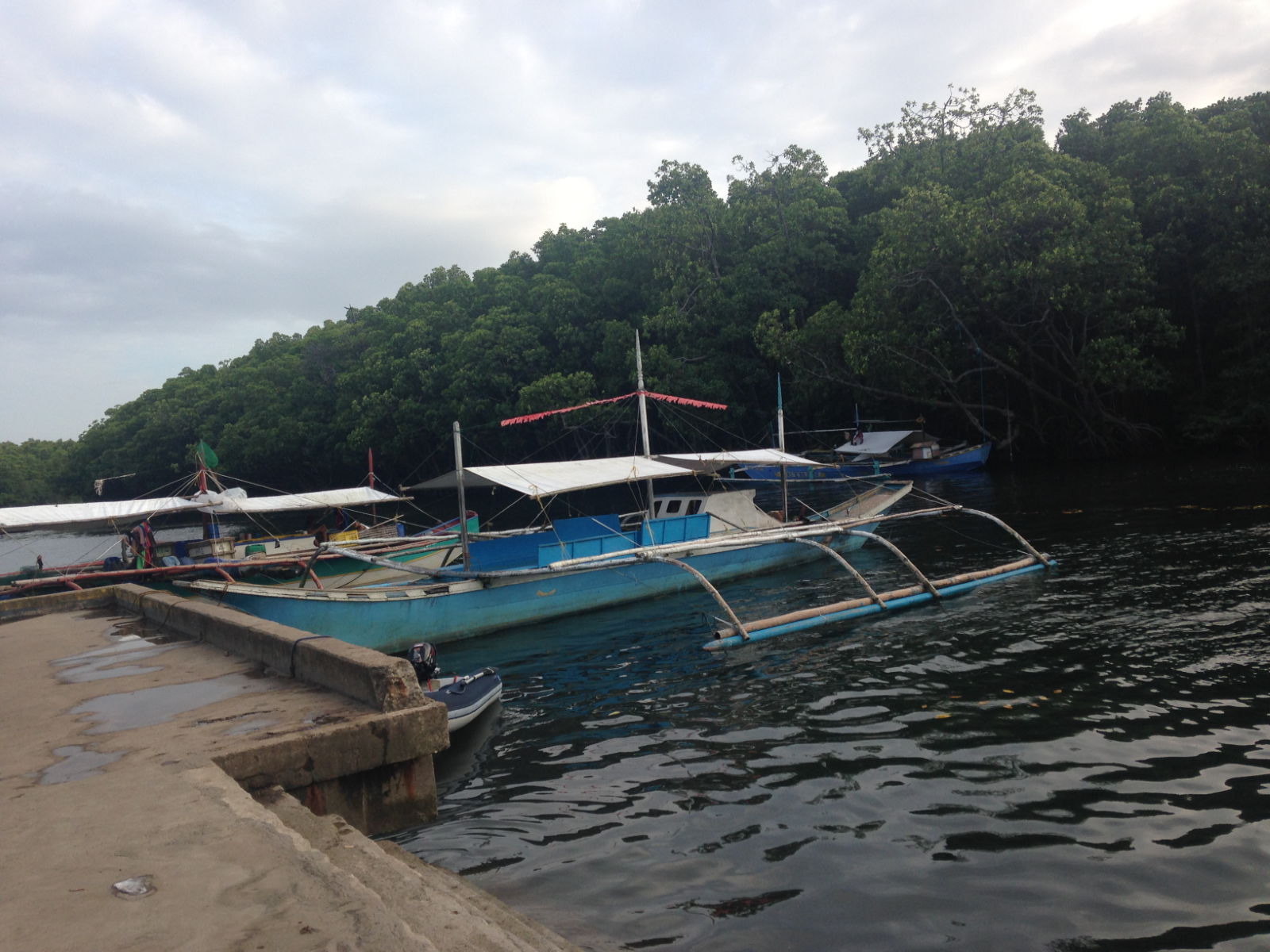
Despite Paul’s repeated assurances that it would soon get calmer, it never really did for the whole of the passage, but at least he provided me with the hope that it might, and it was nice to feel justified in lying around reading because it wasn’t possible to do much else. On the morning of Saturday 24th March we watched Ulugan Bay get closer. More bancas began to appear and in the lee of the hills the sea finally grew calmer. Finding a spot to anchor in meant tackling the dreaded coral. Even with two depth sounders and me at the bow looking out for the shallows, we still managed to scrape along a bit of coral – a horrid sound indeed. We meandered around for a while practising spotting it and attempting to determine if the bed was mostly sandy. So many factors need to be right, and all at the exact moment. It gets very stressful, especially after not much sleep and the intense heat beating down. Still, we did it on our second attempt and were secure by 1 30 in a peaceful and picturesque bay on the west side of Palawan Island. Paul went ashore on his own a bit later to check out the procedure for immigration while I got myself and the boat shipshape. He returned to state that it resembled parts of The Anambas Islands in that it was very basic. He also said he’d arranged for a tricycle (which I found hard to picture) to take us to Puerto Princesa in the morning.
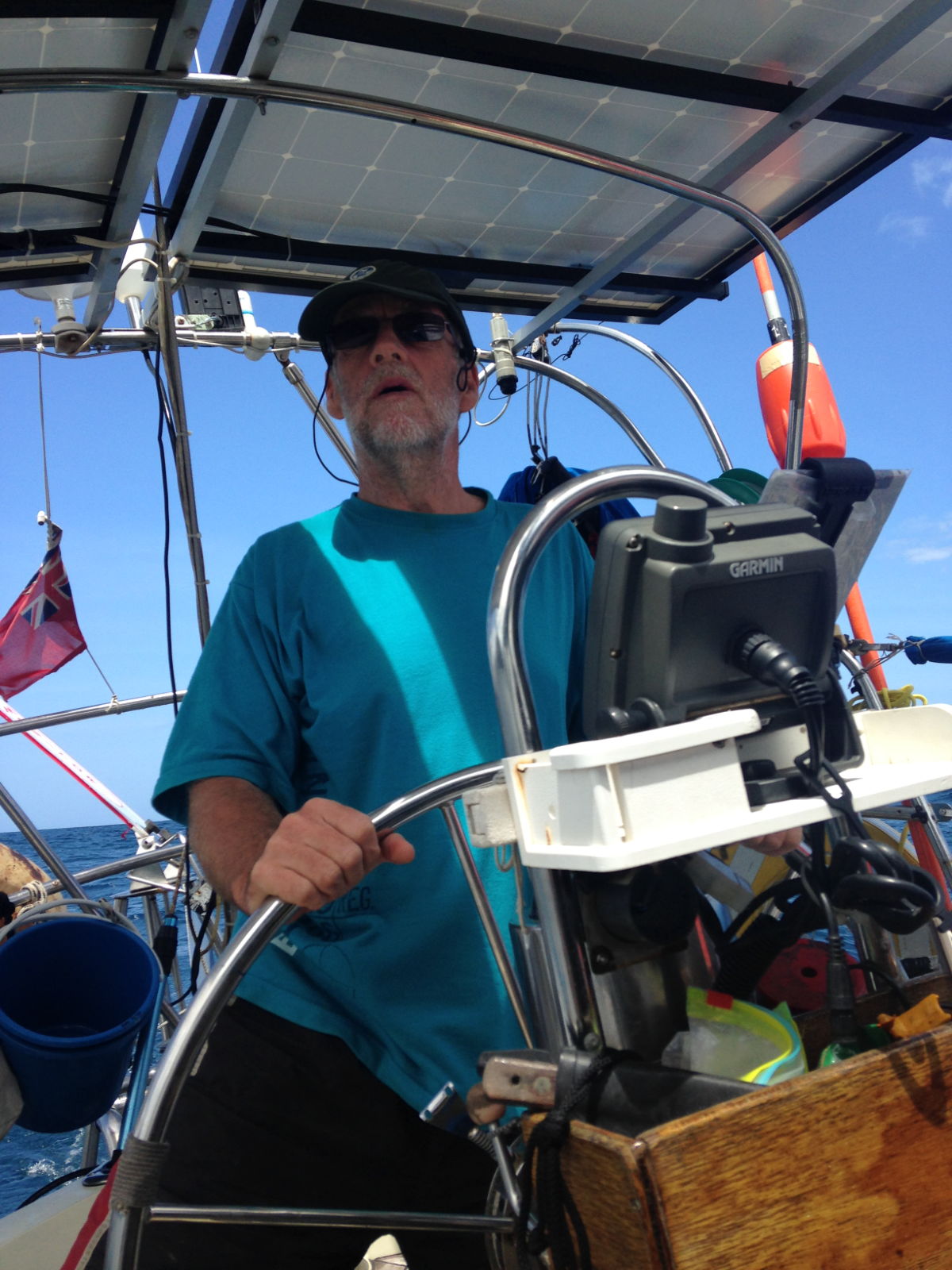
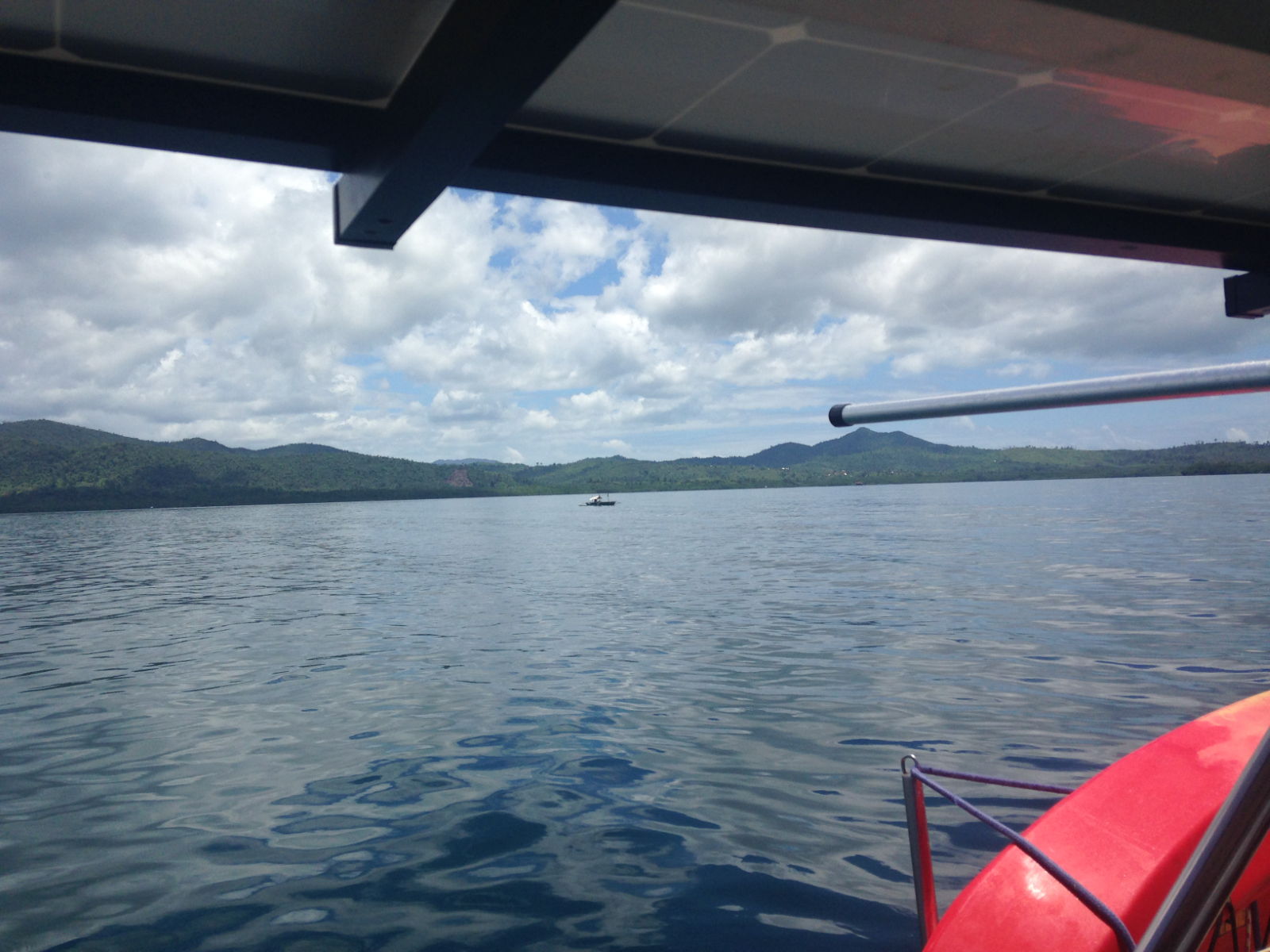
Ulugan Bay looked gorgeous just after sunrise the following day, surrounded as it is by lush green hills and pretty mangroves, with only a few fishing boats on the calm water.

Our approach to the little dock in the village of Macarascas was watched by a few curious and smiling faces who continued to stare as we tied the dinghy and unloaded our bags for the day trip. The village is primitive as Paul said, but it looked lovely, and had a friendly vibe. I thought it was charming, and I liked the fact that the villagers hang out at the waterside, chatting, smoking, children playing nearby. There were a number of dogs too. Once the guy who’d dealt with the trike hire had been found, we were led to the tricycle – which turned out to be a motorbike with a sidecar.

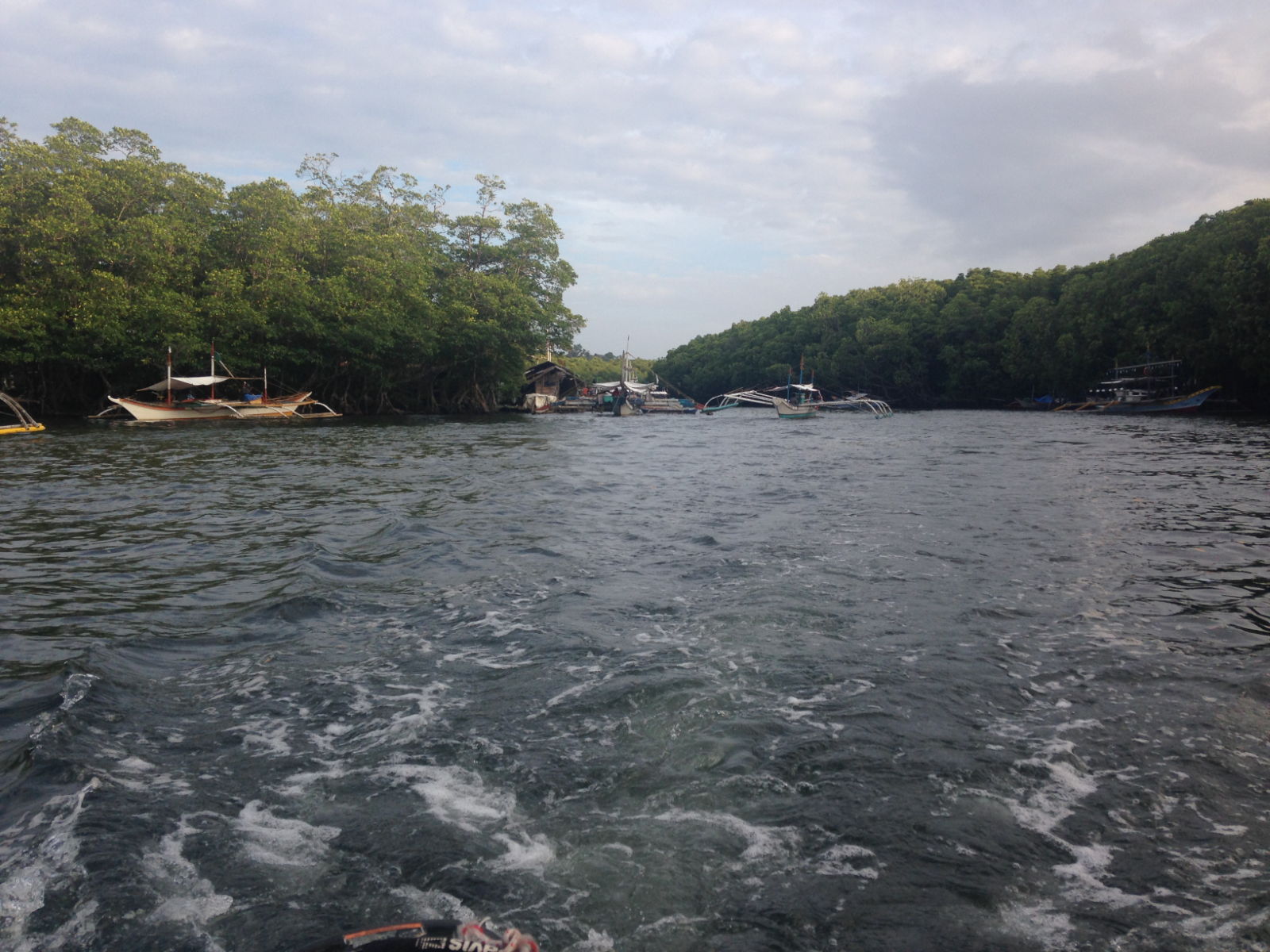
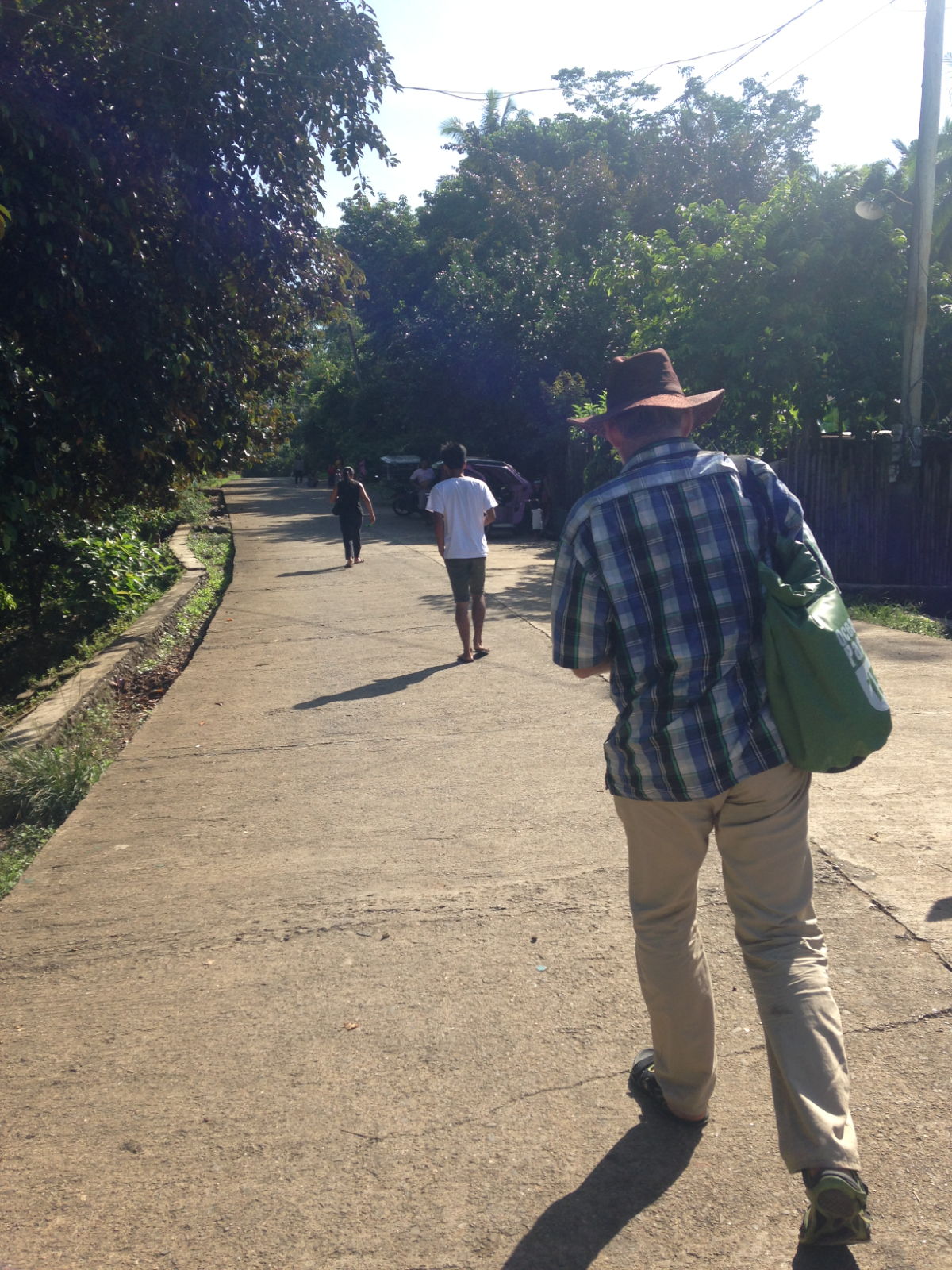
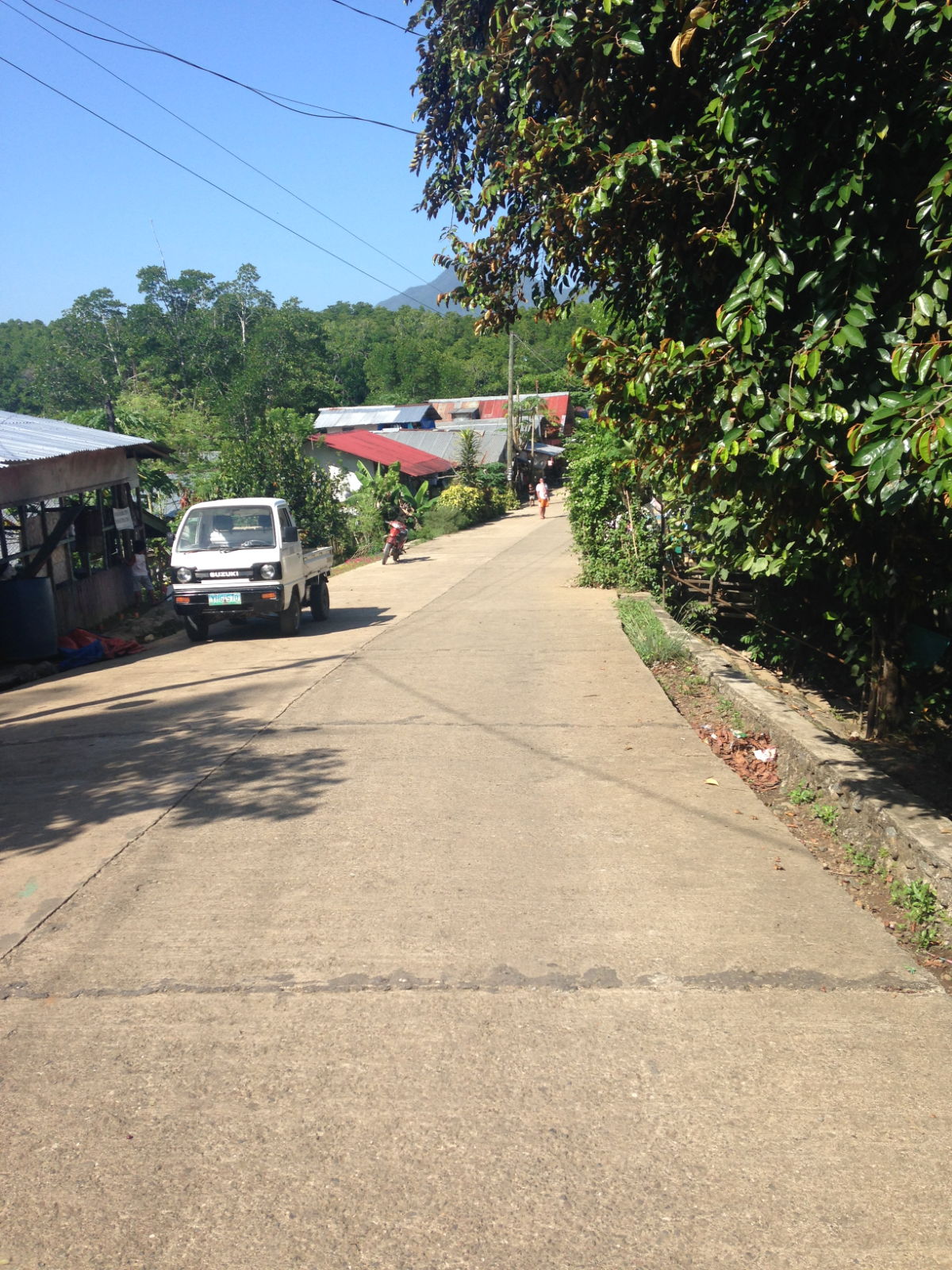
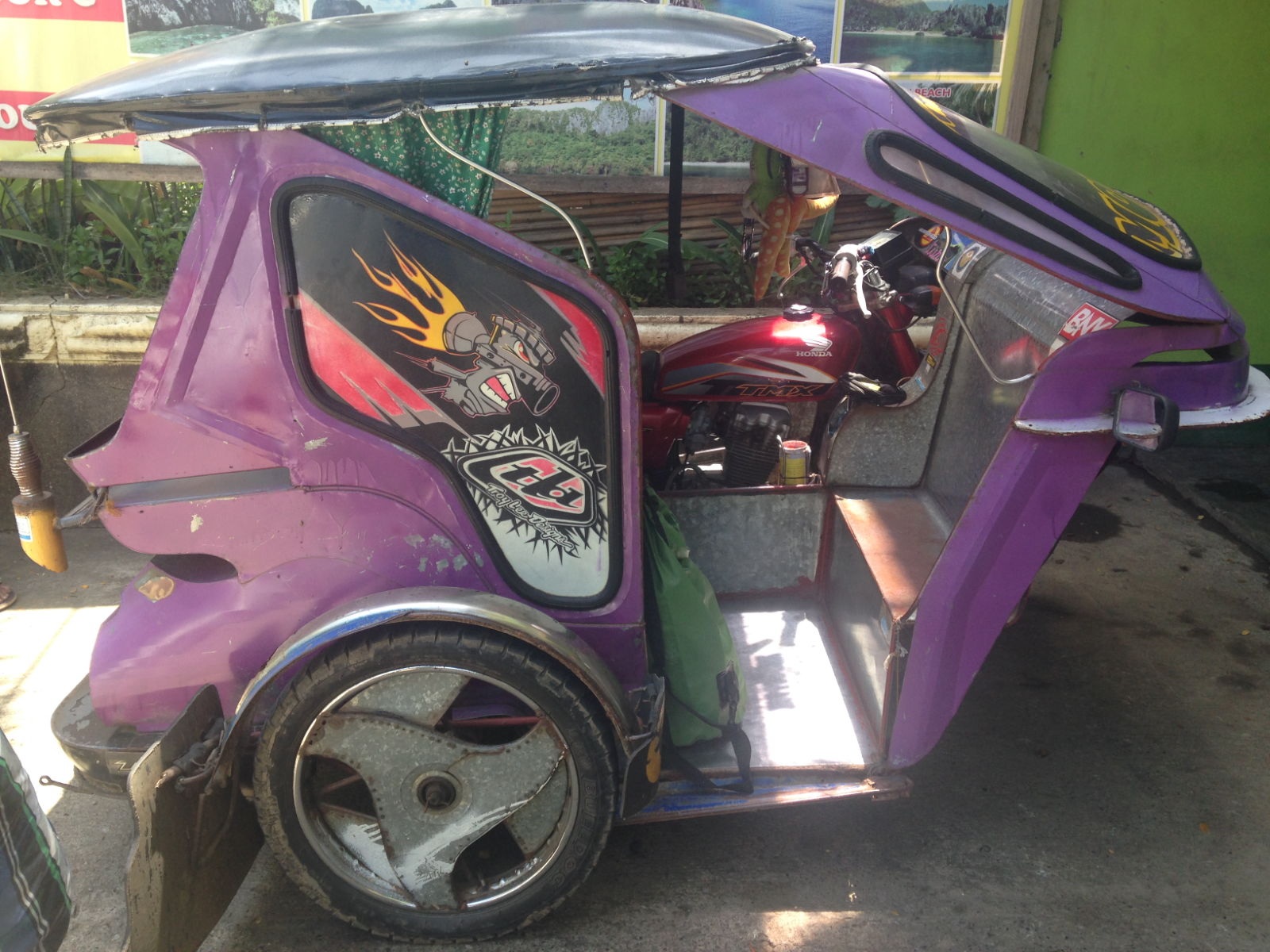
These are like taxis in the Philippines and each one is customised and decorated according to its owner’s taste. I had no idea how long the journey would take and once we’d squeezed into the surprisingly small seat and the engine started, I couldn’t ask because the noise was deafening. Puerto Princesa is located on the east side of the island, directly opposite Ulugan so our route traversed the middle of the island. It seems the custom is to honk the horn at anyone coming towards you, whether it’s a car, bike or trike. Unable to talk, there was plenty to look at. If I was expecting the Philippines to resemble Malaysia and Thailand I soon discovered that it differs from them in ways that are hard to pin down. I couldn’t take pictures on the journey but took as many as I could during the stops. The houses we passed looked very much like chalets, each one different but all quite small.
We stopped after about 30 minutes at a place called Salvacion. Here, we were supposed to get a bus to Puerto Princesa. We hadn’t even got out of the trike (not an easy task when you’ve been scrunched up in such a small space) when we were approached by guys from a roadside café who urged us to try their wonderful coffee while we waited. He was very proud of his coffee and rightly so as it happened. We sat at a table where dogs were snoozing under the chairs. We sipped strong Americanos and chatted to the owners about where we were from, going to and so on.
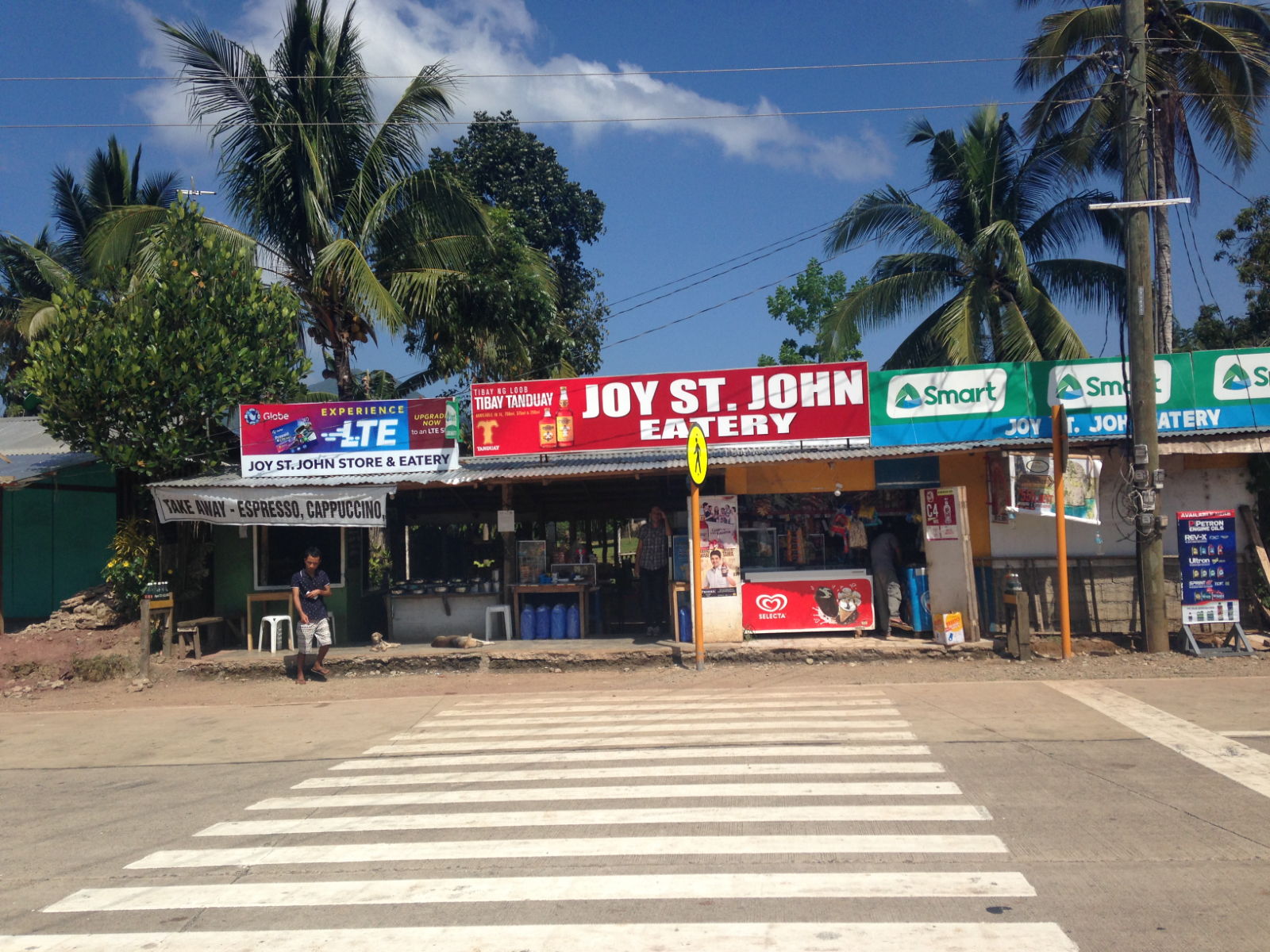
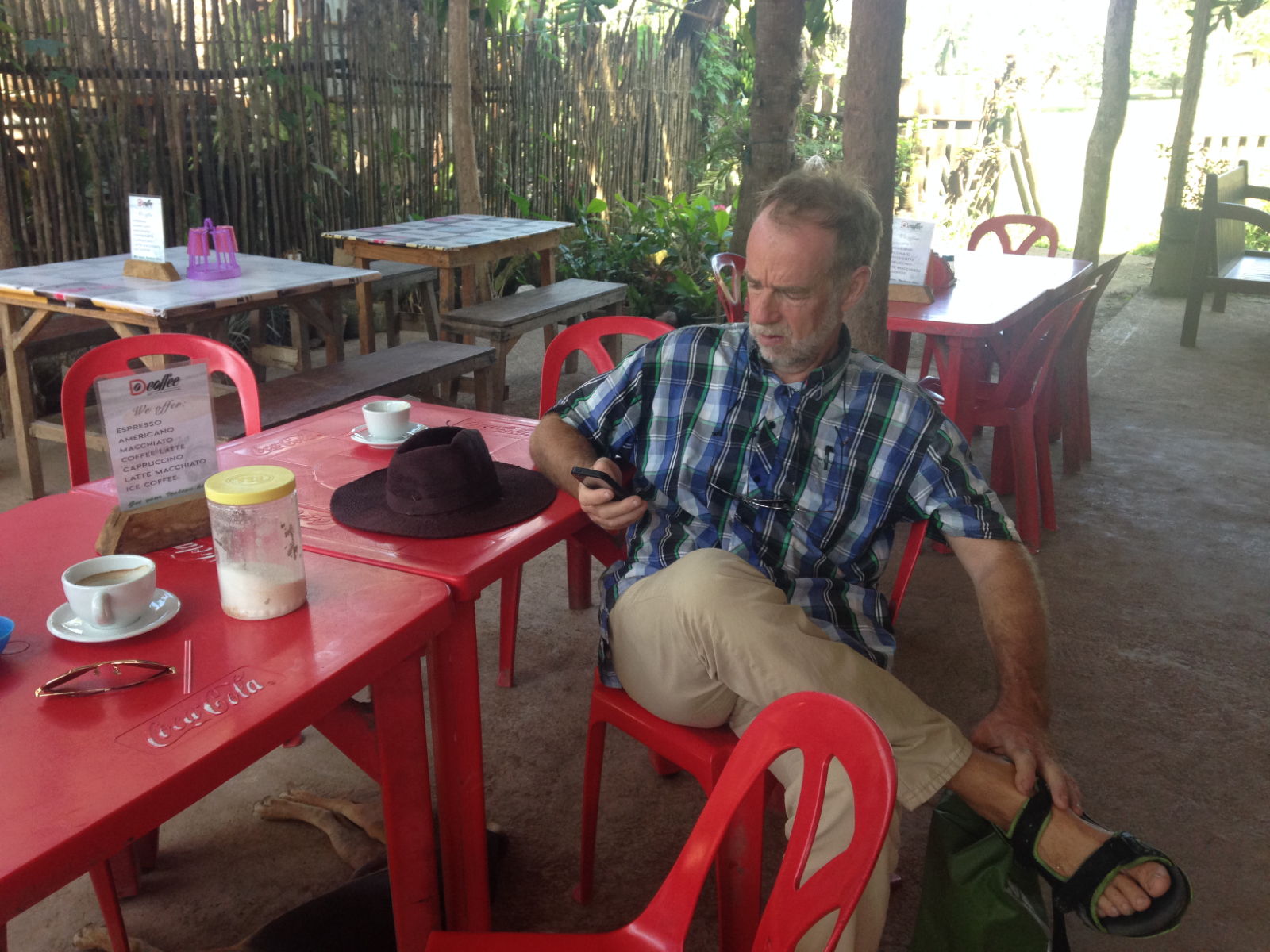
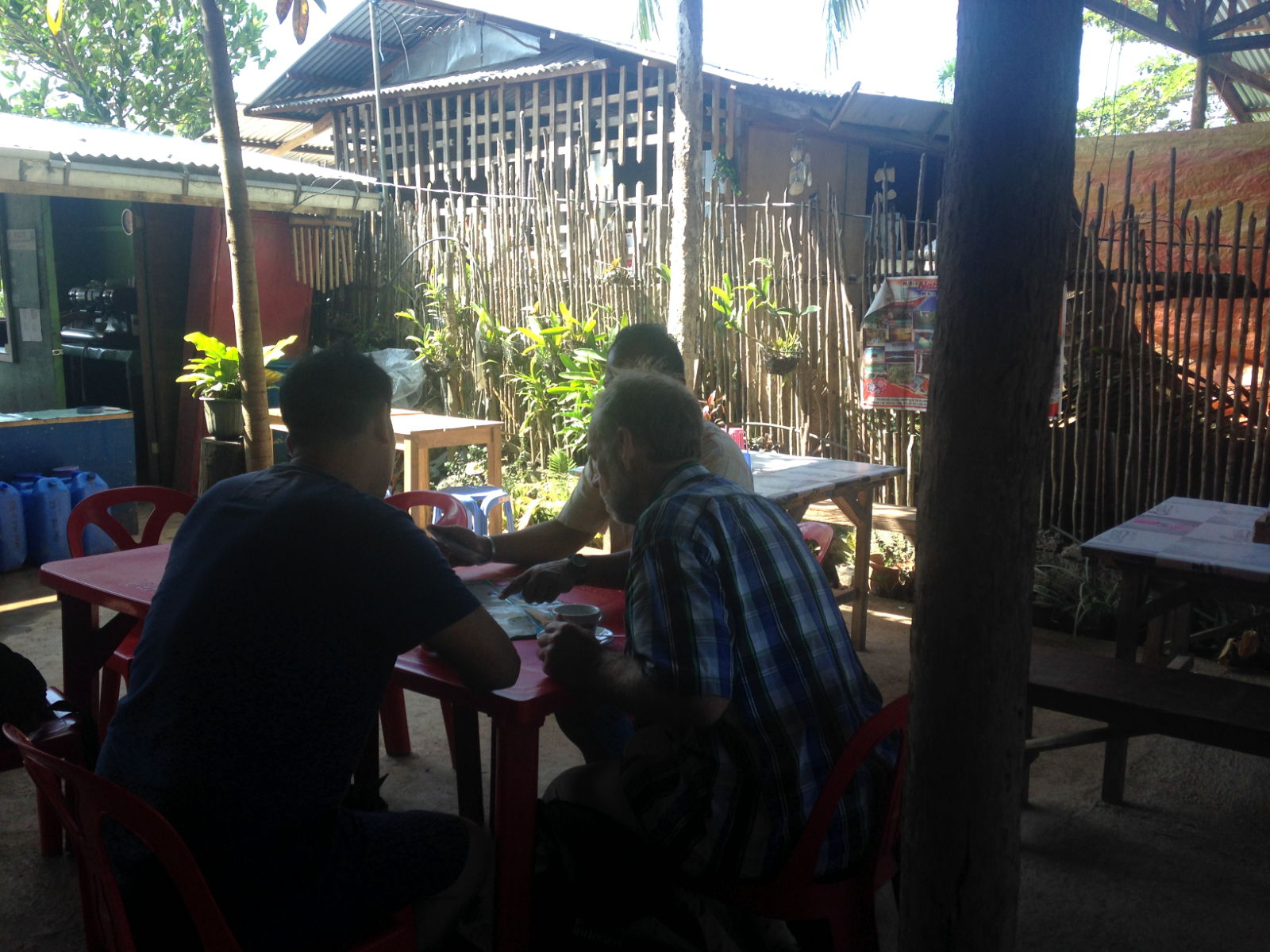

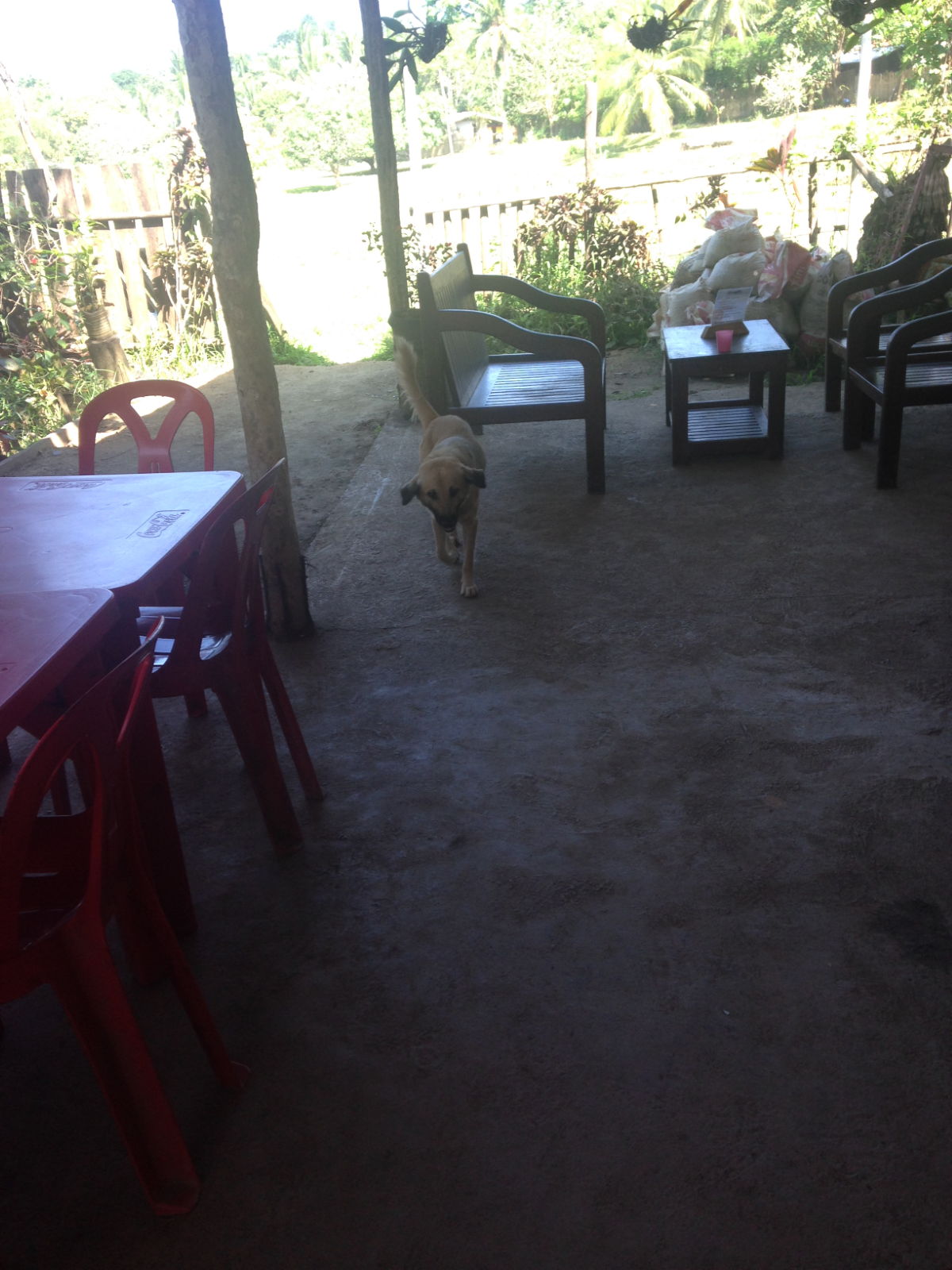
The owner had promised to let us know when the bus arrived but I did wonder, noticing one drive off if perhaps that was it. We’ll never know because not long after a guy came over and said the bus was full and the next one was an hour away. We were offered the chance to take a trike for the rest of the journey with this guy’s friend who happened to be free. After a bit of haggling we agreed a price and were led to our second trike. Paul suspected we might have unwittingly helped the mate get some business as we had no way of knowing about the bus times or availability but it hardly mattered anyway as long as we got there. We hired him for the whole day and he would be taking us to the immigration building, the yacht club where we would be meeting Ian and Marilyn and back to Macarascas too so it was a better deal really. After the tank was filled with fuel from a stash of coke bottles, the journey resumed on bumpy, gravelly roads through rural Palawan. Tiny villages were set back from the main road, bordered by lush vegetation with rolling hills beyond.
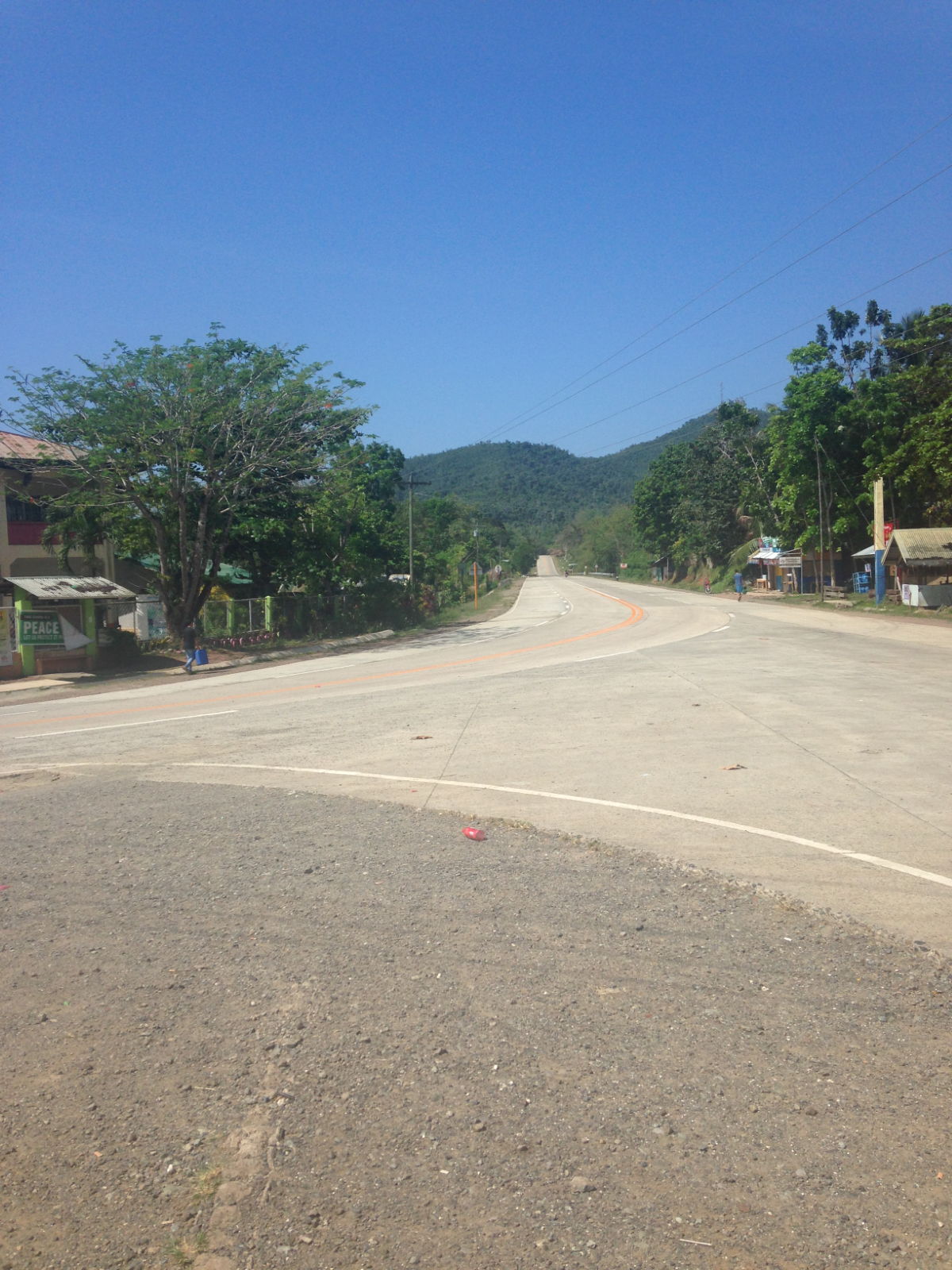
Some parts of the route were steep and I wondered if the trike would make it when the engine juddered and we slowed right down. Undeveloped land was littered with signs saying ‘No Trespassing – land belongs to…’ suggesting there are plans for construction right across the island. Every single shop we passed was named for its owner; ‘Lhily’s Store’, ‘Franky’s Store’ for example. I saw no brand name shops in the villages, but I guess that could change if planned development takes off. There were several churches of various denominations along the way, and we were reminded that it was Palm Sunday by groups of people waving the traditional branches around as they came out. Gradually, larger and more industrial buildings began to appear, along with gaudy signs for local karaoke bars, night clubs and restaurant and I knew we must be approaching Puerto Princesa. Our driver stopped a couple of times to consult with people for directions, but we came upon it almost by accident –both of us recognising it from the google images. It was a complex of three shops on a busy street in the centre, but there was no immigration building there. A handwritten sign adorned with smileys informed us that it had relocated to a shopping mall, which was closed on Sundays. Checking in would have to wait until El Nido.
Our next mission was to find an ATM. Quite a few wouldn’t accept our cards and Paul ended up changing some US dollars at a money changing kiosk. Puerto Princesa is a busy, traffic-choked town, quite a contrast from the rural idylls we’d driven through. On our way to the yacht club, the thin metal sides of the side car radiated heat as we queued in traffic and it felt like we were being boiled as the journey went on. It was worth it when we found the place though. Situated by the waterside overlooking the bay, there was a cooling breeze and a bar offering food and drink. Soon, Ian and Marilyn were dinghying over to join us from Songbird and we had a pleasant hour or so eating lunch and catching up with them.

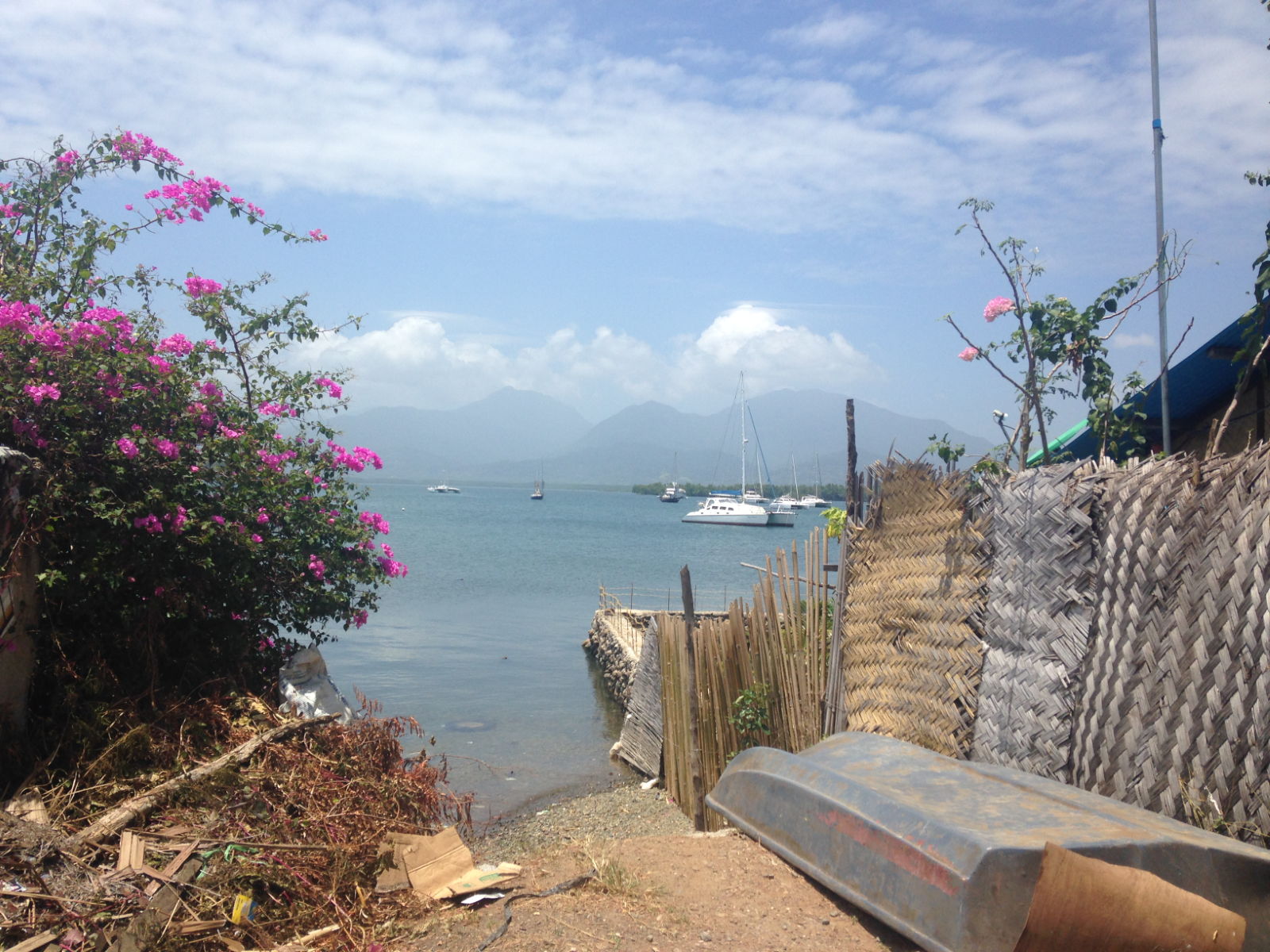
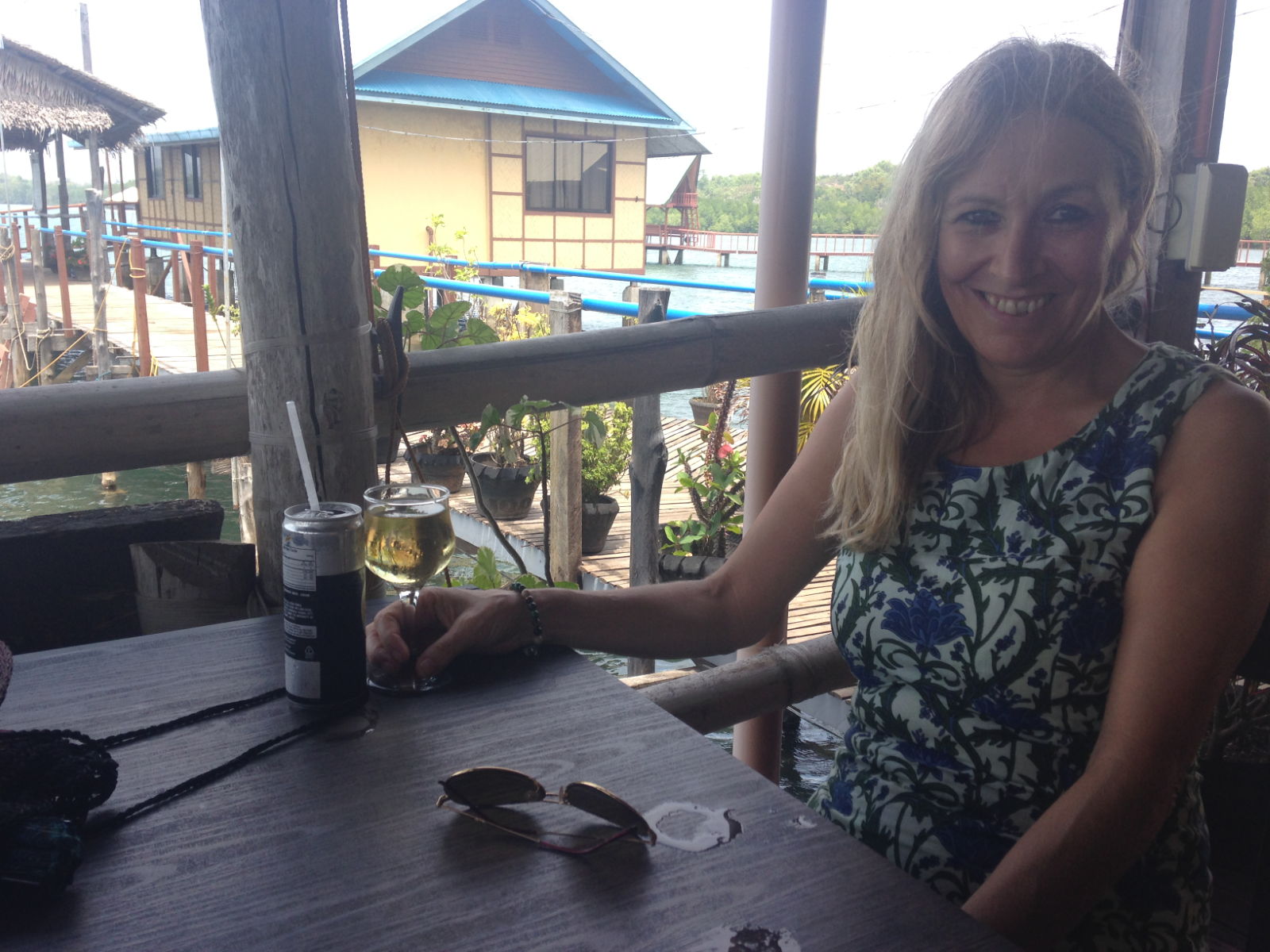
We called our driver (we really should remember to ask names) and got him to take us to a mall so we could stock up on a few things and then readied ourselves for the return journey. This was a lot less uncomfortable because the heat of the sun had waned by then. Back at Macarascas there was the expected interested group of people at the quay watching as we parked up to load our things into the dinghy. The plan was for me to wait there while Paul got our driver to take him to a petrol station to buy fuel (a one hour round trip). Thankfully, a helpful guy, overhearing this, pointed out that the shop right next to us sold diesel. The lady owner poured 60 coke bottles full of it into our containers which we loaded that into the overcrowded dinghy. To the accompaniment of children waving and shouting farewell and dogs barking, we set off back across the bay to figure out our plans for the next leg.
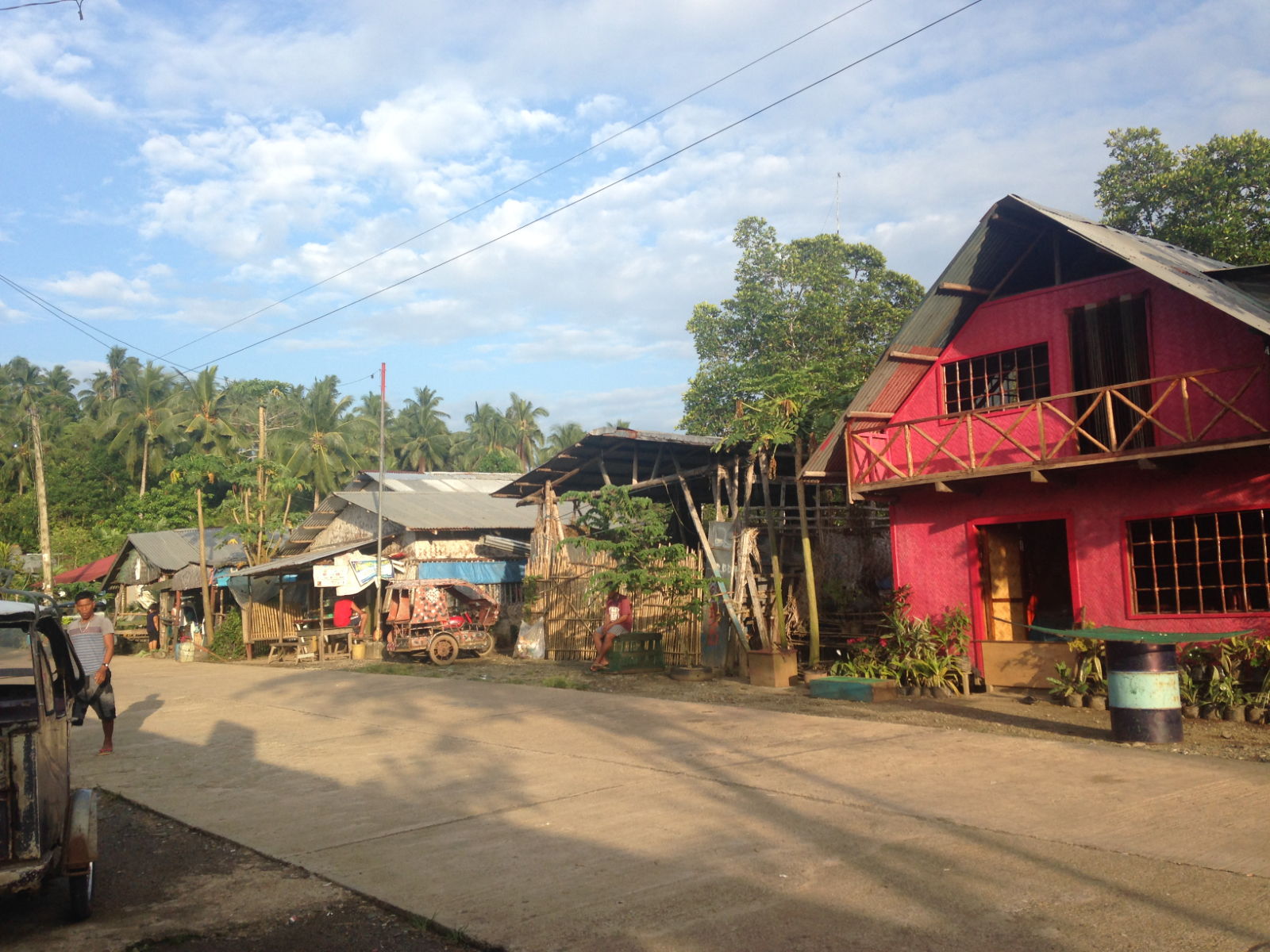
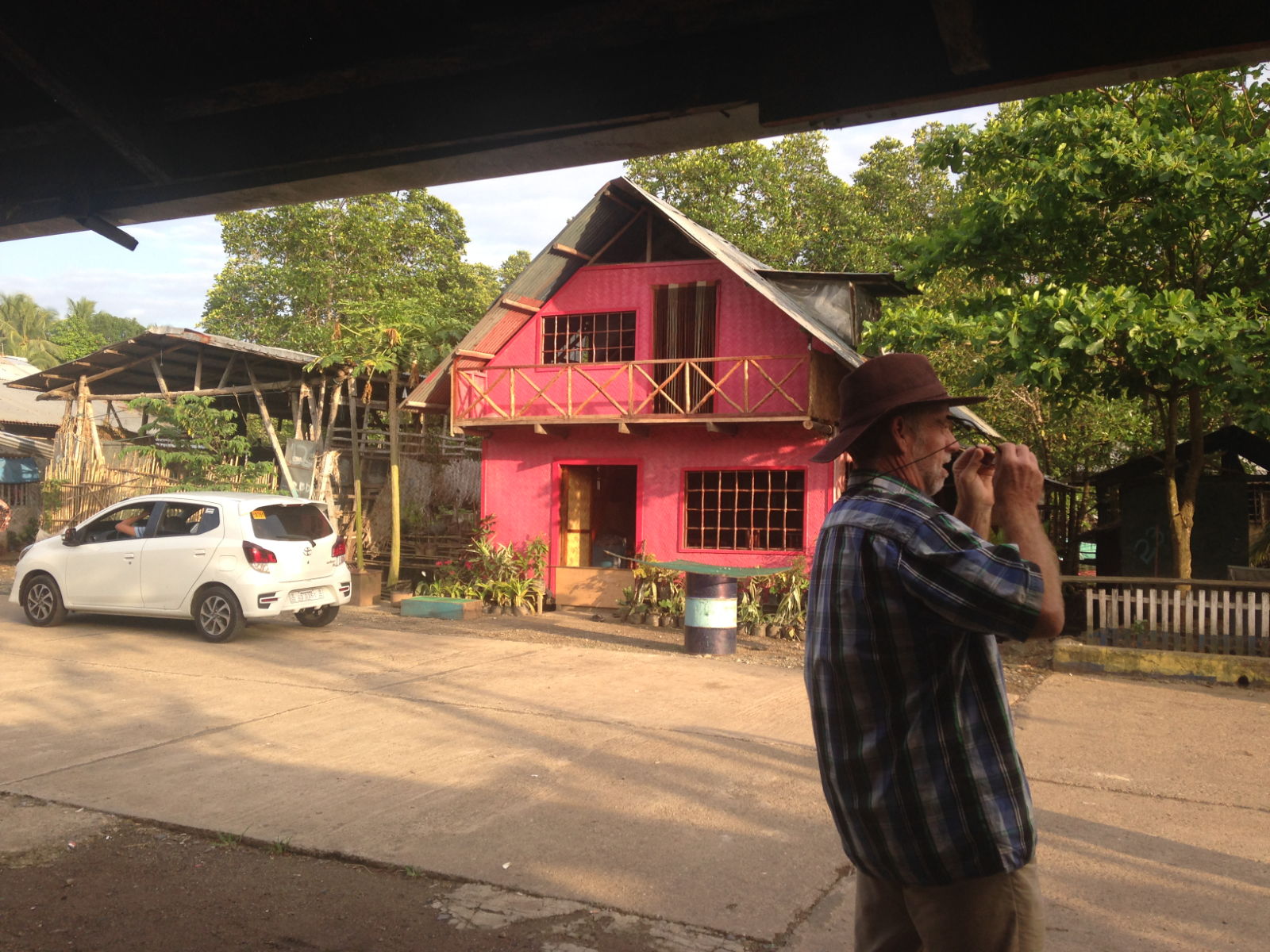
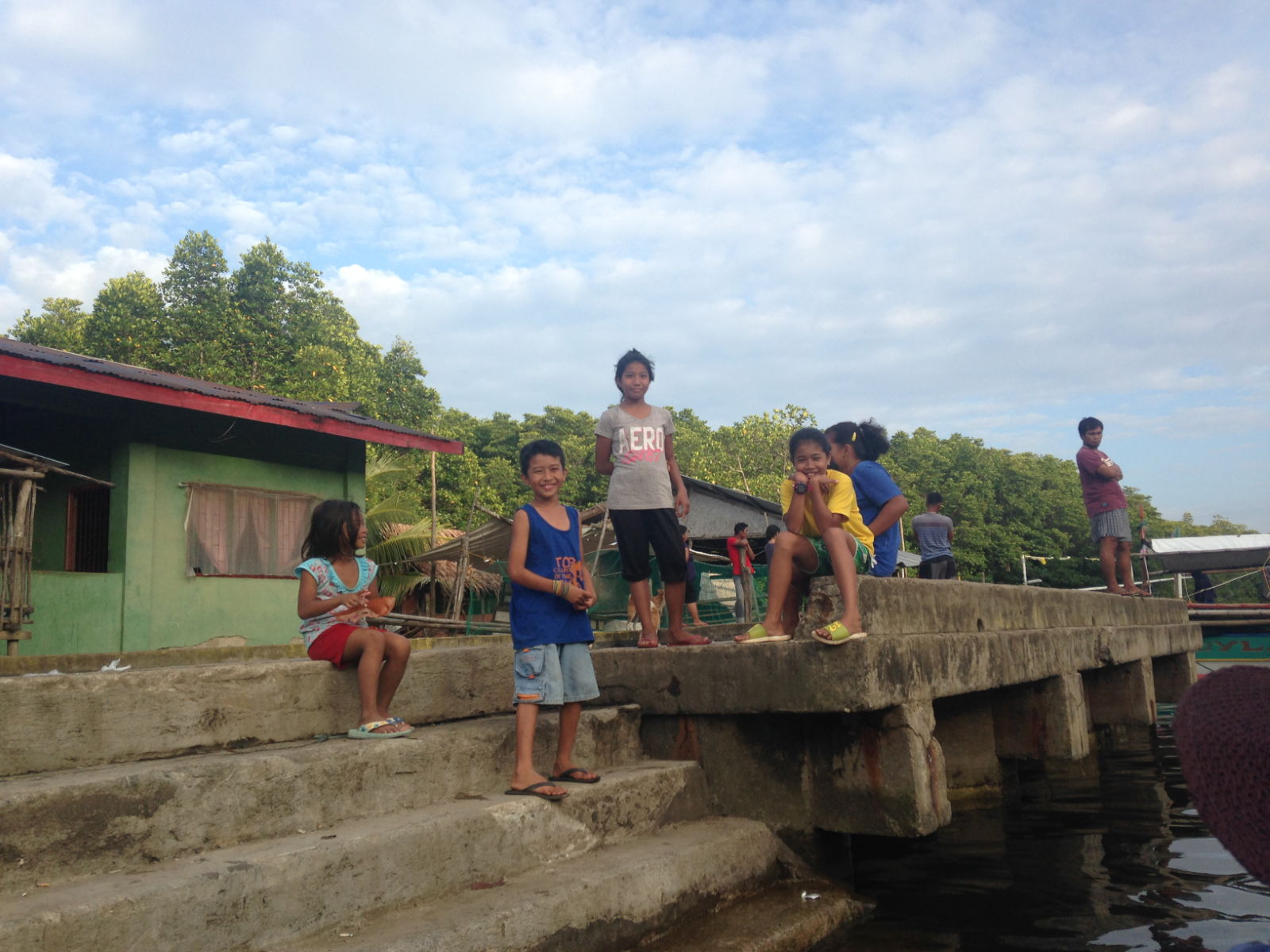

Felt I was on that trip Kathy after reading
it, great read but glad I’m on terra firma!
Thanks, Lesley. Good to see you’re still following us. Yes, I’m grateful I have good ‘sea legs’, although they do desert me sometimes ?Xx
Lovely read Kathy and great pics, loved the children’s smiley faces and yours next the glass of wine. Don’t know what would be worse for me, the night passages with storms and grab bags or a lengthy ride in that trike/batmobile thingy. Stay safe x x